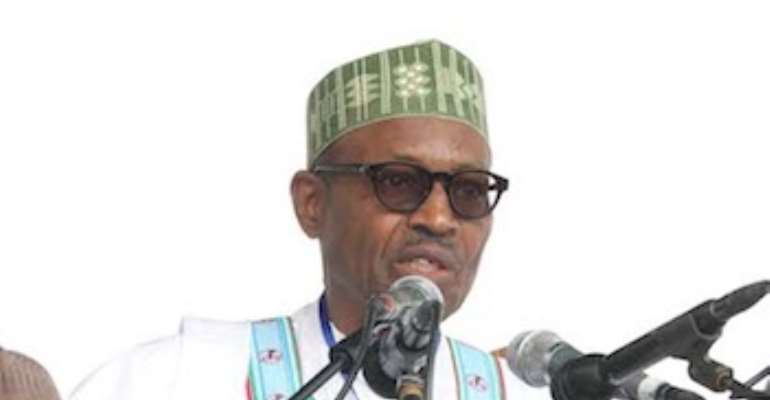Terminating terrorism - The Nation

As President-elect Muhammadu Buhari prepares to assume the mantle of office on May 29, his government must take comprehensive steps to tackle the growing menace of terrorism, inter-communal clashes and other forms of internecine violence that continue to trouble Nigeria.
The Boko Haram insurgency is obviously the biggest problem in this regard. Although sustained campaigns by the armed forces since the end of March have recorded significant successes, especially in the recovery of territories and the liberation of captives, the insurgents still manage to launch hit-and-run attacks. One of the latest took place on May 8 at the College of Business and Administrative Studies in Potiskum, Yobe State. Five insurgents killed a security guard, shot at students, and triggered an improvised explosive device (IED) which injured about 20 students.
Then there are the inter-communal clashes that have come to rival Boko Haram attacks in their savagery and violence. There are long-running disturbances in Benue, Kaduna, Plateau and Taraba states, in addition to periodic flare-ups in almost every other state. In Taraba, an estimated 100 people were killed at the beginning of May in a series of attacks launched by ethnic youth militias and by individuals alleged to be soldiers.
If the Buhari administration is to make good on its promises of positive socio-economic and political change, it will have to put the restoration of peace and stability at the top of its agenda.
The first thing to do would be to unlearn the failures of preceding administrations. The most tragic of these is President Goodluck Jonathan's under-estimation of the seriousness of the Boko Haram insurgency. Instead of confronting it decisively from the onset, excuses were made for a succession of military and political missteps which only underscored governmental incompetence, even as the terrorist threat expanded inexorably. While government dithered, a rag-tag militia transformed itself into a formidable terrorist organisation.
To further worsen matters, serious effort was not made to mobilise local populations against terrorism and communal unrest. Instead, they were often seen as the enemy, and treated as such. The Joint Task Force in Borno State has been repeatedly accused of gross human rights abuses in its efforts to crack down on Boko Haram, and security agencies have been similarly charged with aggravating unrest in Plateau, Adamawa, Kaduna and Taraba states.
The Buhari administration should build on the current successes of the military by ensuring that they are able to hold recaptured territory, rescue and succour Boko Haram captives, and liaise effectively with the allied nations of Niger, Chad and Cameroon in the push to end the insurgent menace. It must investigate the corruption in the military that damaged its readiness and effectiveness. It should speed up the creation and training of special forces troops who are better able to prosecute unconventional conflicts. It must rescind the dubious contracts given to ethnic militia groups and return the armed forces to its pride of place.
Sustained attempts must also be made to convene roundtable meetings at which different parties will thoroughly air their grievances, and more must be done to follow up the resolutions of such parleys. In the Fulani-settler disputes, for example, the need for a grazing corridor in Middle Belt states has long been advocated; it should be implemented without delay.
It is especially important for the Buhari administration to bring an end to the culture of impunity. No longer should the perpetrators of internecine violence be allowed to get away with their crimes. The discredited process of setting up tribunals and panels of inquiry whose reports are subsequently ignored must not continue.
Peace is essential to any strategy of change. It is to be hoped that the incoming administration will achieve this fundamental objective of purposeful governance.
'It is especially important for the Buhari administration to bring an end to the culture of impunity. No longer should the perpetrators of internecine violence be allowed to get away with their crimes. The discredited process of setting up tribunals and panels of inquiry whose reports are subsequently ignored must not continue'
